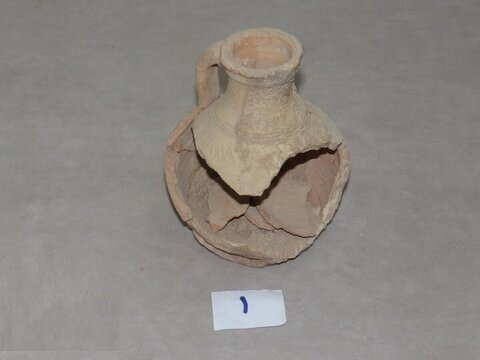Parthian clay pot unearthed in southern Iran

TEHRAN - In a cultural preservation effort, a Parthian-era clay pot has been discovered in the Rayen district of Kerman province, southern Iran.
A local official in charge of cultural heritage preservation reported that the artifact was found thanks to a combination of intelligence efforts and engagement initiatives aimed at promoting social participation among local and indigenous communities.
The discovery, Moslem Iranmanesh pinpointed, was made by honorary heritage guardians who subsequently handed the artifact over to the Rayen protection unit.
“The antique artifact is a clay pot adorned with grooved and wavy decorations,” he further noted.
Experts have assessed the artifact, determining it to be of historical value and dating back to the Parthian period, according to the official.
Iranmanesh stated that historical artifacts serve as cultural identifiers for each region, reflecting their historical and national identity.
In his final words, he emphasized that preserving these artifacts offers a wide range of cultural, economic, and social benefits to local communities.
Rayen is a historical town located in the southeastern part of Iran, within Kerman province. Known for its rich cultural heritage, Rayen is home to the impressive Rayen Castle (Arg-e Rayen), one of the best-preserved mudbrick citadels in the world. The castle dates back to the Sassanian era and resembles the famous Bam Citadel, though it is smaller in scale.
The region around Rayen is known for its historical significance and archaeological wealth, with numerous ancient sites and artifacts that offer insights into Iran’s past civilizations.
XF/AM
